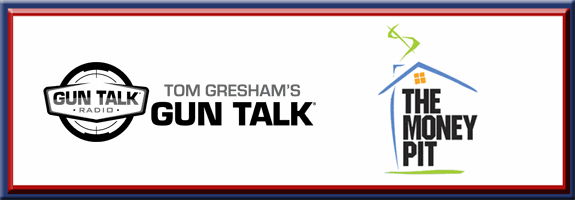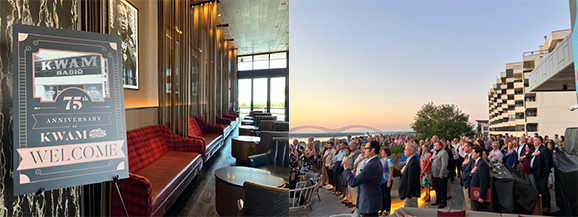By Holland Cooke
Consultant
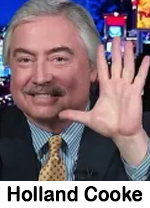 Companies hire consultants to avoid experiments. We improve results by customizing and implementing Best Practices proven elsewhere. So, I’m about to break a rule, because advertisers in a super-opportune category have become a noisy blur.
Companies hire consultants to avoid experiments. We improve results by customizing and implementing Best Practices proven elsewhere. So, I’m about to break a rule, because advertisers in a super-opportune category have become a noisy blur.
Personal Injury: The gift that keeps-on-giving
Legal representation of purported victims of fender benders, slip-and-fall accidents, and other “injuries caused by the negligent, careless, or reckless actions of others” is an industry in which supply exceeds demand. Thus, all the outdoor and TV advertising. And too little radio.
In the Providence, RI TV market I watch at home, this category stands shoulder-to-shoulder with look-alike automotive spots in sheer dollars over-spent. And their message is the same on billboards:
— The attorney’s head shot (also a real estate agent cliché); and
— 6-figure settlements touted.
Because they’re all shouting the same thing, they resort to tactics:
— Attorney Rob Levine is “The Heavy Hitter,” and runs enough TV that viewers in Southern New England can sing the jingle: “The Heavy Hitter is the one for you. Call one-eight-hundred-law-one-two-two-two.” To his credit, it’s a different phone number than his web site offers, so he can track TV results.
— Easier to remember: Bottaro Law: 777-7777.
Watching local Las Vegas TV while at CES recently was a deep dive into Law advertising. The pitch from several I saw was we charge less, like a shameless radio competitor dropping-trou’ to get the entire buy.
If we don’t win, you don’t pay
“What are your rights? What is your case worth?” Possibly a cash amount divisible-by-3, if that’s the attorney’s contingency.
Those expensive nationally syndicated TV spots (customized for the local firm) depict fearful insurance executives eager to settle. And the attorney may threaten that, “if they don’t, we’ll beat ‘em in court.” Baloney, that’s the last thing the lawyer wants. Too time-consuming and risking a losing verdict.
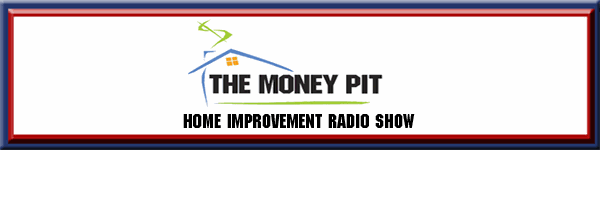
Like radio commercials, attorneys’ inventory is perishable
— We can’t sell yesterday’s empty spot avail; and lawyers’ closing opportunity is “B.I.S.,” Butts In Seats for that free, no-obligation consultation, in-person, where the seller goes for the close.
— If nobody was sitting in that chair today (“intake”), no sale.
— And that’s how attorneys are missing a bet not using radio.
“The lawyer is in, the meter is off”
That’s the proposition when they field listener calls in brokered weekend talk radio shows.
— DONE RIGHT, these shows can run-rings-around TV and outdoor ROI.
— Forgive caps lock in that last sentence, but it’s a crying shame how – at too many stations – the audition for pay-for-play weekend talkers is the-check-didn’t-bounce. One of the things I do for client stations is coach-up weekend warriors — in hosting fundamentals that are second-nature to us — but not to non-career broadcasters. Results = renewals. Otherwise brokered hosts churn, a management distraction, and upsetting listening habits.
— Occasionally, in markets where I don’t even have a client station, I’m working with lawyers (and real estate agents, financial advisors, foodies, and other ask-the-expert hosts), because nobody at the station is doing airchecks with them.
— No billboard or tacky TV spot can humanize the attorney – and demonstrate the comforting counsel – like eavesdropping on a conversation with a caller’s relatable situation.
Think “sales funnel”
We know how to make the phone ring, specific dance steps. The more callers, the better.
— When lines are full, screeners can choose callers whose dilemma is in the attorney’s lane. If, for instance, the host specializes in Personal Injury (or “Family Law,” translation divorce; or another specialty), calls about real estate transactions are off-topic.
— Do this right, and – before the host can offer – callers will often ask “May I call you in the office on Monday?”
Admittedly, this is an experiment…
…because I am frustrated witnessing all this noisy me-too advertising.
Personal Injury cases are he-said-she-said. So try this, and tell me if it works.
— Sales 101: That first call is Needs Assessment, right? Know the prospect’s pain.
— Yet too many radio reps resemble Herb Tarlek, telling the station’s story. Amoeba-shaped coverage maps and ratings rankers and rate cards all look alike…like Law firm marketing.
— I’m telling any attorney willing to listen to make four words the centerpiece of the marketing message, and they’re the same four words that turn callers into clients for weekend talkers: “Tell me what happened.”
The Free Prize Inside: Podcasts
Lifting weekend calls to repurpose as on-demand audio is digital marketing value-added.
Holland Cooke (HollandCooke.com) is a consultant working at the intersection of broadcasting and the Internet. He is the author of “Multiply Your Podcast Subscribers, Without Buying Clicks,” available from Talkers books; and “Spot-On: Commercial Copy Points That Earned The Benjamins,” a FREE download; and the E-book and FREE on-air radio features “Inflation Hacks: Save Those Benjamins.” Follow HC on Twitter @HollandCooke
Share this with your network
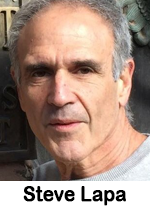 Ready to go back to the future?
Ready to go back to the future?


 Radio talkers: What is this hour about? How will listeners benefit from listening? And how long do you expect them to wait to hear that?
Radio talkers: What is this hour about? How will listeners benefit from listening? And how long do you expect them to wait to hear that?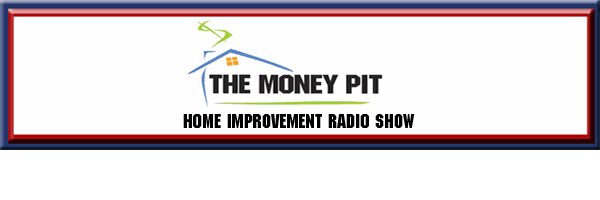
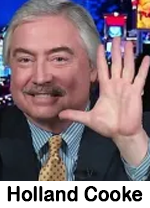 I asked my pal, longtime radio seller, now retired: “How often were you asked, ‘How much would you charge for ONE commercial?’”
I asked my pal, longtime radio seller, now retired: “How often were you asked, ‘How much would you charge for ONE commercial?’”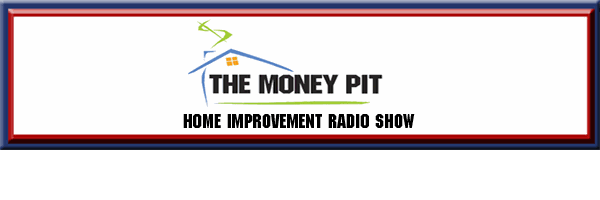
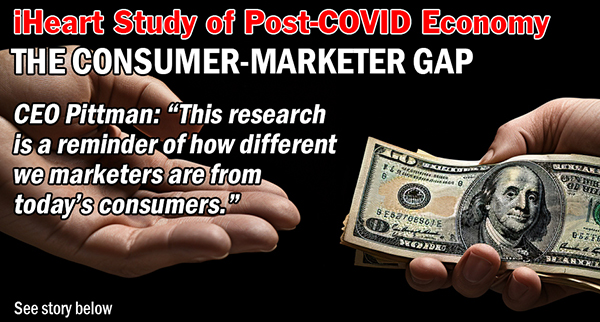
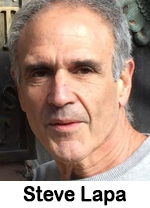 When was the last time you went shopping for a quality living room rug? Not an oriental, because that is just too easy. We’re talking high quality living room rug that will blend in and stand the test of time… and the dog. Next to fighting with a credit card company, it’s the worst shopping experience ever.
When was the last time you went shopping for a quality living room rug? Not an oriental, because that is just too easy. We’re talking high quality living room rug that will blend in and stand the test of time… and the dog. Next to fighting with a credit card company, it’s the worst shopping experience ever.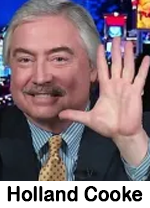 THE Best Bit I’ve Heard This Month was by Gene Valicenti, morning host, WPRO-AM/WEAN-FM, Providence.
THE Best Bit I’ve Heard This Month was by Gene Valicenti, morning host, WPRO-AM/WEAN-FM, Providence.
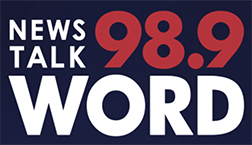 Erick Erickson as the new afternoon talk show host on WYRD-FM, an unsurpassed team of talent will serve the Upstate, north Georgia and western North Carolina. Erick’s thought-provoking discussions, unyielding insight and captivating presence will be a welcomed addition to our listeners and partners. Erick will complete News/Talk 98.9 WORD’s incredible lineup, allowing us to provide unmatched content for listeners and the largest and most effective platform for advertisers.” Erickson is syndicated via Compass Media Networks.
Erick Erickson as the new afternoon talk show host on WYRD-FM, an unsurpassed team of talent will serve the Upstate, north Georgia and western North Carolina. Erick’s thought-provoking discussions, unyielding insight and captivating presence will be a welcomed addition to our listeners and partners. Erick will complete News/Talk 98.9 WORD’s incredible lineup, allowing us to provide unmatched content for listeners and the largest and most effective platform for advertisers.” Erickson is syndicated via Compass Media Networks. 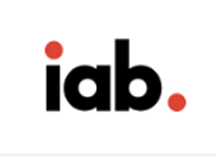 PricewaterhouseCoopers LLP, “quantifies annual podcast advertising revenues generated over the past year, analyzes revenue share by ad category and content genre, and forecasts future revenues through 2025.” The study says the top revenue-generating content genres are Sports (15%), Society & Culture (14%), and Comedy (14%) and have taken the lead from News and Political Opinion content (down from 19% to 12%). IAB VP, media center Eric John says, “In-person sports, lifestyle events, and in-store shopping have come back in a big way, taking the lead from news which held the top revenue genre spot since 2018. Podcasting revenue naturally reflects that shift in consumer behavior and it will be interesting to watch how the balance changes going forward.” He adds, “Both mass and niche advertisers like the audiences, targeting, and ROI along with the brand-safe and suitable environments that podcasting offers.”
PricewaterhouseCoopers LLP, “quantifies annual podcast advertising revenues generated over the past year, analyzes revenue share by ad category and content genre, and forecasts future revenues through 2025.” The study says the top revenue-generating content genres are Sports (15%), Society & Culture (14%), and Comedy (14%) and have taken the lead from News and Political Opinion content (down from 19% to 12%). IAB VP, media center Eric John says, “In-person sports, lifestyle events, and in-store shopping have come back in a big way, taking the lead from news which held the top revenue genre spot since 2018. Podcasting revenue naturally reflects that shift in consumer behavior and it will be interesting to watch how the balance changes going forward.” He adds, “Both mass and niche advertisers like the audiences, targeting, and ROI along with the brand-safe and suitable environments that podcasting offers.”  represents an expanded commitment to one of iHeartMedia’s most premium products allowing advertisers to engage audiences with creative, longform native content.” iHeartMedia goes on to say, “Ruby’s branded podcasts allow advertisers and their brand partners to spend upwards of 30-45 minutes with their target audience in a unique environment, with opportunities for storytelling that are not possible anywhere else in their media mix including social video. With distribution across the iHeartRadio app and all other major platforms, native podcasts from Ruby connect brands to audiences by translating brand messaging, products and services into original and engaging stories that audiences love.”
represents an expanded commitment to one of iHeartMedia’s most premium products allowing advertisers to engage audiences with creative, longform native content.” iHeartMedia goes on to say, “Ruby’s branded podcasts allow advertisers and their brand partners to spend upwards of 30-45 minutes with their target audience in a unique environment, with opportunities for storytelling that are not possible anywhere else in their media mix including social video. With distribution across the iHeartRadio app and all other major platforms, native podcasts from Ruby connect brands to audiences by translating brand messaging, products and services into original and engaging stories that audiences love.” 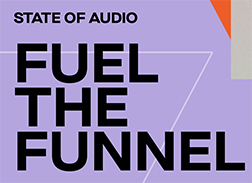 and streaming for everything from brand awareness to consumer purchase. Audacy chief marketing officer Paul Suchman says, “Audio holds the title as the undisputed leader of brand-building channels – working its magic with the one-two punch of massive reach and beloved and trusted personalities. But if you’re thinking of Audio as just a top-of-funnel play – good for sparking a conversation but not driving conversion – think again. The truth is the game has expanded in recent years and audio is now a truly multi-purpose platform. Thanks to precision targeting, authentic influencers whose listeners follow them across channels, and advanced measurement, marketers are uncovering the best-kept secret in media – audio’s ability to drive impact at every funnel stage.”
and streaming for everything from brand awareness to consumer purchase. Audacy chief marketing officer Paul Suchman says, “Audio holds the title as the undisputed leader of brand-building channels – working its magic with the one-two punch of massive reach and beloved and trusted personalities. But if you’re thinking of Audio as just a top-of-funnel play – good for sparking a conversation but not driving conversion – think again. The truth is the game has expanded in recent years and audio is now a truly multi-purpose platform. Thanks to precision targeting, authentic influencers whose listeners follow them across channels, and advanced measurement, marketers are uncovering the best-kept secret in media – audio’s ability to drive impact at every funnel stage.” 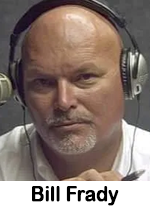 Bill Frady.” Audacy Greenville-Spartanburg SVP and market manager Steve Sinicropi states, “Bill Frady has provided great content doing swing shifts on ‘106.3 WORD’ for years. Bill is a native Greenvillian, a recognized firearms expert, and a tremendous conservative voice that will complement WYRD-FM’s incredible news and talk talent lineup. Adding Bill Frady to our full-time, on-air team will provide great content for listeners and new opportunities for advertisers. I look forward to hearing Bill on the air and on the station’s expanded 100,000-watt signal.” Previously, Audacy announced the plan to move WORD’s talk programming to the 98.9 frequency in which the station will be branded “News/Talk 98.9 WORD.”
Bill Frady.” Audacy Greenville-Spartanburg SVP and market manager Steve Sinicropi states, “Bill Frady has provided great content doing swing shifts on ‘106.3 WORD’ for years. Bill is a native Greenvillian, a recognized firearms expert, and a tremendous conservative voice that will complement WYRD-FM’s incredible news and talk talent lineup. Adding Bill Frady to our full-time, on-air team will provide great content for listeners and new opportunities for advertisers. I look forward to hearing Bill on the air and on the station’s expanded 100,000-watt signal.” Previously, Audacy announced the plan to move WORD’s talk programming to the 98.9 frequency in which the station will be branded “News/Talk 98.9 WORD.” Does anybody really know what time it is? Does anybody really care? YES.
Does anybody really know what time it is? Does anybody really care? YES.
 before an ad runs, enabling advertisers to plan and execute campaigns with confidence. iHeartMedia chief data officer Brian Kaminsky says, “Audio had been without a truly operative brand safety tool that gave advertisers the ability to run without risk at a national scale. The process was labor intensive, fragmented, and often failed to deliver the level of protection brands truly needed. We looked at every potential solution in the industry, and Sounder’s technology is far ahead when it comes to brand safety and suitability. This new tool changes the future and opens up endless possibilities. Brands are now able to opt out of content they deem unsafe and inappropriate. Our partnership with Sounder has set a new benchmark for transparency in audio advertising that has been long overdue.”
before an ad runs, enabling advertisers to plan and execute campaigns with confidence. iHeartMedia chief data officer Brian Kaminsky says, “Audio had been without a truly operative brand safety tool that gave advertisers the ability to run without risk at a national scale. The process was labor intensive, fragmented, and often failed to deliver the level of protection brands truly needed. We looked at every potential solution in the industry, and Sounder’s technology is far ahead when it comes to brand safety and suitability. This new tool changes the future and opens up endless possibilities. Brands are now able to opt out of content they deem unsafe and inappropriate. Our partnership with Sounder has set a new benchmark for transparency in audio advertising that has been long overdue.”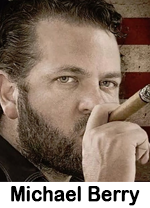 Growing up in a small town, “word of mouth” was the most powerful form of advertising. It could make – or break – a business. Malcolm Gladwell’s important Tipping Point book explained that movements, pandemics, and other things that “catch on” do so because of the influence of “connectors” – people who are asked for their opinion. Today, the media world likes to call them “influencers.”
Growing up in a small town, “word of mouth” was the most powerful form of advertising. It could make – or break – a business. Malcolm Gladwell’s important Tipping Point book explained that movements, pandemics, and other things that “catch on” do so because of the influence of “connectors” – people who are asked for their opinion. Today, the media world likes to call them “influencers.” How might we better serve you in the future? How would you rate our service?
How might we better serve you in the future? How would you rate our service?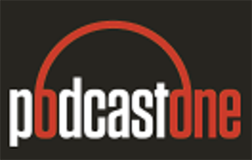 “This endeavor marks an exciting introduction into gamification and monetization for PodcastOne, its host talent, and advertisers allowing them to create or sponsor relevant and topical content for fans that will reside on PodcastOne.com. MiniGames created by PodcastOne show hosts will also be distributed across the vast VersusGame MiniGames Network which includes over 900 verified hosts.” PodcastOne president Kit Gray says, “Our partnership with VersusGame is another way for us to capitalize on fan engagement. It’s a wonderful opportunity for us and for our hosts to engage with fans in an interactive way. Offering users the chance to win financially, while also generating internal revenue is a win for everyone. Bringing gamification into the PodcastOne world brings our listeners into our shows in a whole new way. Now they get to engage directly with show hosts and participate in the conversation. It elevates the listener’s experience like never before.”
“This endeavor marks an exciting introduction into gamification and monetization for PodcastOne, its host talent, and advertisers allowing them to create or sponsor relevant and topical content for fans that will reside on PodcastOne.com. MiniGames created by PodcastOne show hosts will also be distributed across the vast VersusGame MiniGames Network which includes over 900 verified hosts.” PodcastOne president Kit Gray says, “Our partnership with VersusGame is another way for us to capitalize on fan engagement. It’s a wonderful opportunity for us and for our hosts to engage with fans in an interactive way. Offering users the chance to win financially, while also generating internal revenue is a win for everyone. Bringing gamification into the PodcastOne world brings our listeners into our shows in a whole new way. Now they get to engage directly with show hosts and participate in the conversation. It elevates the listener’s experience like never before.” If you float a trial balloon, expect it to be shot down.
If you float a trial balloon, expect it to be shot down. Companies hire consultants to avoid experiments. We improve results by customizing and implementing Best Practices proven elsewhere. So, I’m about to break a rule, because advertisers in a super-opportune category have become a noisy blur.
Companies hire consultants to avoid experiments. We improve results by customizing and implementing Best Practices proven elsewhere. So, I’m about to break a rule, because advertisers in a super-opportune category have become a noisy blur.
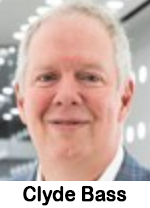 Kansas and Springfield, Missouri. iHeartMedia division president Nick Gnau says, “I am so excited to add Clyde’s leadership to an already strong cluster of markets in Texas. Clyde’s passion for our industry, his knowledge of our products and the success he has shown through many roles with iHeartMedia make him the perfect fit to lead this newly formed Area. I look forward to seeing these areas continue to succeed as one.” Bass most recently led the Arkansas Area. He comments, “It’s been my honor to be involved for the last 10 years with some of the legendary stations that I grew up listening to here in Arkansas, and now to be reunited as area president with the team in Texas makes me even more energized over what iHeartMedia provides to advertisers and listeners.”
Kansas and Springfield, Missouri. iHeartMedia division president Nick Gnau says, “I am so excited to add Clyde’s leadership to an already strong cluster of markets in Texas. Clyde’s passion for our industry, his knowledge of our products and the success he has shown through many roles with iHeartMedia make him the perfect fit to lead this newly formed Area. I look forward to seeing these areas continue to succeed as one.” Bass most recently led the Arkansas Area. He comments, “It’s been my honor to be involved for the last 10 years with some of the legendary stations that I grew up listening to here in Arkansas, and now to be reunited as area president with the team in Texas makes me even more energized over what iHeartMedia provides to advertisers and listeners.”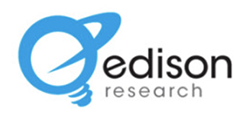 podcast listening behaviors. “The Gen Z Podcast Listening Report” from SXM Media and Edison Research “provides an in-depth look at the podcast habits and motivations of the elusive and much-desired Gen Z listener.” Edison vice president Megan Lazovick says, “Everything we do at Edison Research works to drive the audio space forward with the highest quality data. We believe these two studies will help advertisers understand the opportunities for audio to reach these two important generations and of course help the media companies who can deliver these audiences.”
podcast listening behaviors. “The Gen Z Podcast Listening Report” from SXM Media and Edison Research “provides an in-depth look at the podcast habits and motivations of the elusive and much-desired Gen Z listener.” Edison vice president Megan Lazovick says, “Everything we do at Edison Research works to drive the audio space forward with the highest quality data. We believe these two studies will help advertisers understand the opportunities for audio to reach these two important generations and of course help the media companies who can deliver these audiences.”